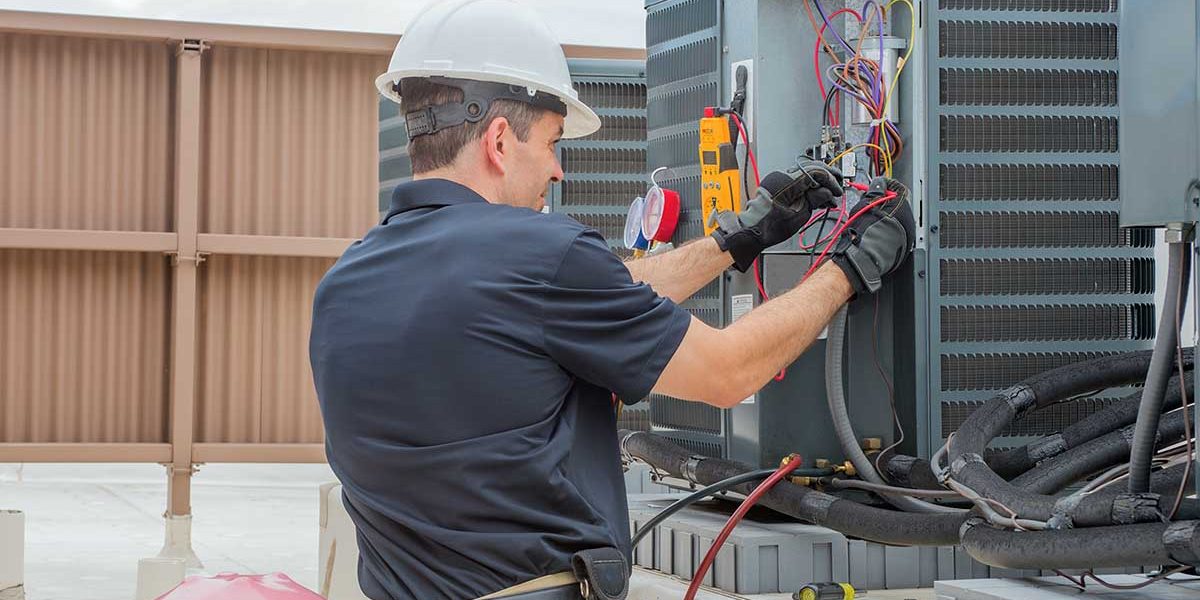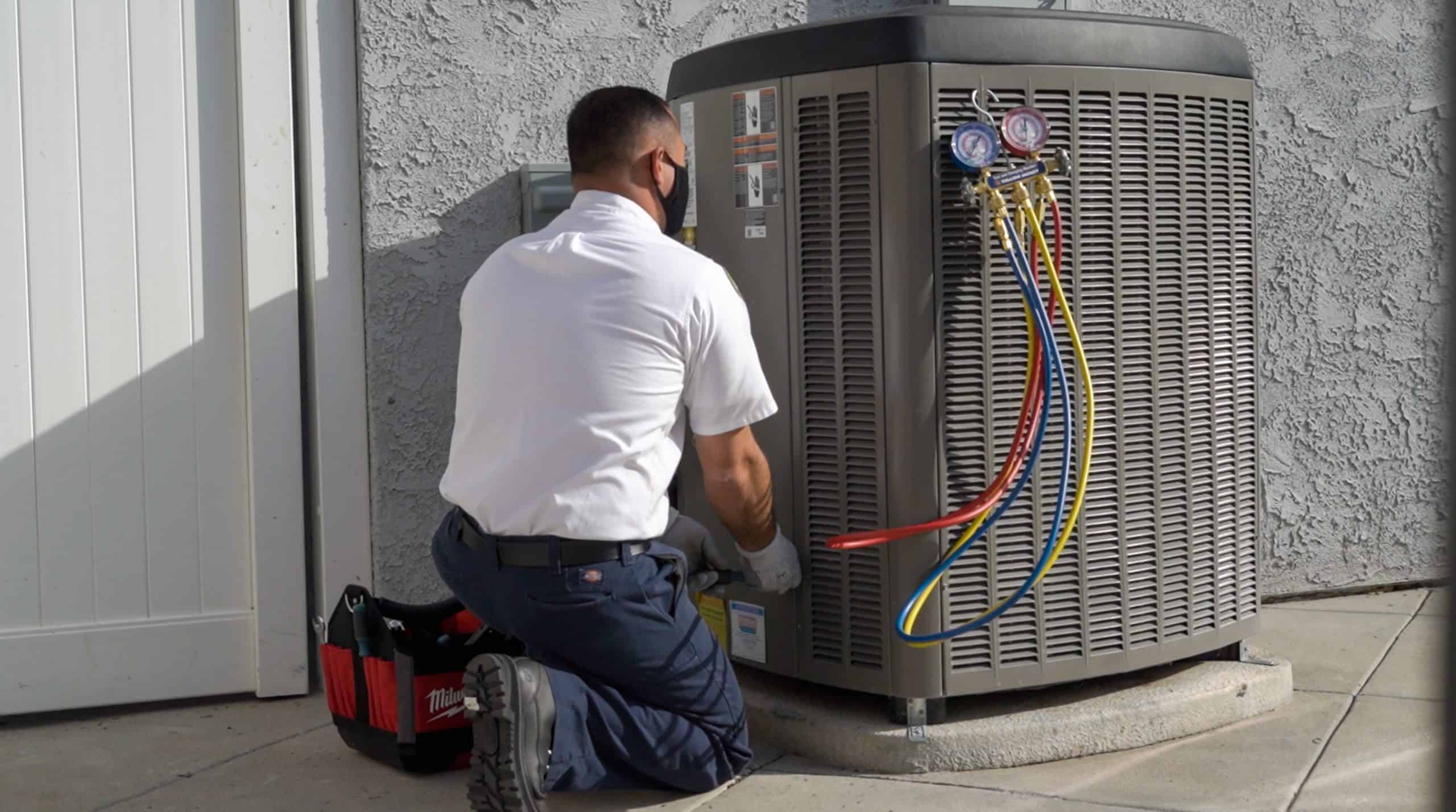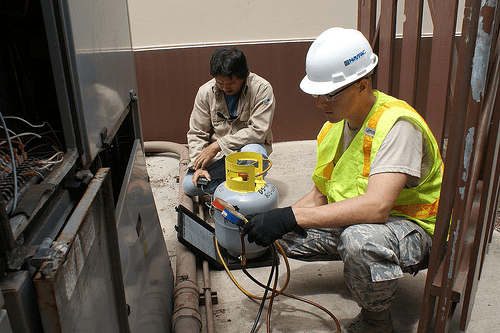The Significance of A/c Setup: Secret Factors To Consider for a Comfy Indoor Setting
The installment of a Heating and cooling system is an important element in attaining a comfy and energy-efficient interior environment. Factors such as the suitability of the system for certain structure needs, appropriate sizing to prevent inadequacies, and the experience of professionals for a top quality installment play critical roles. The fostering of sophisticated technologies can considerably improve system efficiency.
Selecting the Right System

When selecting a cooling and heating system, it is important to assess the capacity required to successfully warm or cool down the space without overworking the system, which can lead to increased wear and operational costs. Consulting with a professional heating and cooling professional can offer valuable insights right into picking a system that aligns with both the architectural design and the anticipated usage patterns of the building.
Furthermore, taking into consideration the assimilation of wise modern technology can improve system monitoring and surveillance, providing greater control and prospective price savings. By diligently assessing these elements, one can guarantee the option of a cooling and heating system that not just satisfies prompt demands but likewise adds to long-term functional sustainability and resident convenience.
Recognizing Power Effectiveness
Comprehending energy effectiveness is vital when thinking about an A/c installation, as it straight influences both the ecological impact and the functional costs of the system. The performance of an A/c system is commonly indicated by rankings such as SEER (Seasonal Power Performance Proportion) for air conditioners or AFUE (Yearly Fuel Usage Performance) for heaters.

Buying an energy-efficient a/c system not just translates to set you back savings however likewise contributes positively to ecological preservation by reducing greenhouse gas discharges. Furthermore, many jurisdictions use motivations or discounts for the setup of high-efficiency systems, even more enhancing their monetary charm.
When assessing energy efficiency, think about advanced functions such as variable speed electric motors, wise thermostats, and zoning capabilities. These innovations enhance the system's ability to adjust to differing demand, therefore optimizing energy usage. It is important to speak with heating and cooling specialists that can offer understandings right into the very best choices customized to specific climate conditions and usage patterns, guaranteeing maximum effectiveness and comfort.
Relevance of Appropriate Sizing

Conversely, a small a/c system will certainly struggle to reach the desired temperature, especially throughout severe weather. This can cause constant operation, resulting in higher energy prices and possible getting too hot of system elements. Additionally, inadequate sizing can lead see here now to irregular temperature level distribution, causing particular locations of a building to be too cozy or as well amazing.
To achieve the proper sizing, a thorough lots computation is important. This involves analyzing various elements such as the structure's square video footage, insulation levels, home window types, and neighborhood environment conditions. By accurately establishing the heating and cooling down requirements of a space, cooling and heating experts can advise systems that make sure efficient procedure, reduced power consumption, and improved interior comfort.

Making Certain Top Quality Installment
A seamless Cooling and heating setup is the cornerstone of a system's durability and performance. This expert should possess in-depth understanding of varied systems go to website and be proficient at analyzing the particular demands of the building.
Correct installation surpasses plain placement of devices. It involves accurate calibration to make certain optimal air flow, reliable energy usage, and consistent temperature level distribution. This consists of exact ductwork installation, making sure links are leak-free and protected, which is essential for maintaining system effectiveness and interior air top quality.
Furthermore, the application of sophisticated analysis devices throughout installment can spot prospective problems early, protecting against pricey repairs and extending the lifespan important source of the system. The professional must likewise make certain that all parts are suitable which the system abides with neighborhood building ordinance and laws.
Normal Upkeep Practices
As soon as the foundation for a high-performing HVAC system is developed through top quality installment, the focus should change to routine maintenance techniques to guarantee ongoing effectiveness and integrity. Routine upkeep not just prolongs the life-span of the system but likewise boosts indoor air top quality, reduces energy intake, and prevents expensive fixings. Vital upkeep tasks include consistently changing air filters, cleaning up evaporator and condenser coils, and evaluating the system for obstructions or leakages.
Air filters should be replaced or cleaned up each to 3 months, depending on usage and environmental aspects. This straightforward task can considerably enhance air circulation and system performance (air conditioning installation Brownwood TX). Cleaning the evaporator and condenser coils prevents dirt build-up, which can hinder heat absorption and air conditioning ability. In addition, specialist service technicians need to evaluate the system each year, looking for cooling agent degrees, electrical connections, and overall system performance.
Interest to ductwork is also critical; securing and cleaning up ducts consistently stops air loss and contamination. Carrying out a maintenance timetable makes sure that minor concerns are dealt with prior to they intensify, protecting the system's functional stability. By sticking to these maintenance practices, home owners can enhance their HVAC system's capability and preserve a comfortable indoor setting year-round.
Final Thought
By choosing a proper system customized to certain building requirements, understanding energy efficiency, and ensuring proper sizing, inadequacies can be decreased. The participation of proficient specialists assurances high quality installation, while the integration of innovative modern technologies improves system performance and surveillance.
Numerous types of Heating and cooling systems are available, including split systems, crossbreed systems, duct-free systems, and packaged heating and air systems, each with distinctive benefits and constraints.
Comprehending energy efficiency is crucial when taking into consideration a Cooling and heating setup, as it directly influences both the environmental impact and the functional costs of the system. The performance of a Cooling and heating system is normally indicated by ratings such as SEER (Seasonal Power Efficiency Proportion) for air conditioners or AFUE (Annual Gas Use Efficiency) for heating systems (air conditioning installation Brownwood TX).When the structure for a high-performing HVAC system is developed with top quality installation, the emphasis ought to move to routine upkeep methods to guarantee ongoing efficiency and reliability. Furthermore, specialist technicians ought to check the system annually, checking for refrigerant degrees, electric links, and total system performance